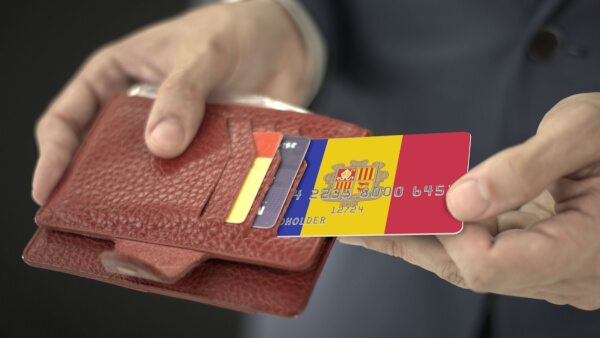How to open a UK bank account online in 2025
Check out our essential guide on how to open a bank account online, including bank types, required documents, fees, and more.

If you’re planning on an extended stay in Hungary, you’ll probably find it beneficial to open a local bank account. According to the 2011 Census, Hungary had 220,000 officially registered expats living and working in the country. What that means for you is that most large and popular financial institutions already have systems in place to make getting a bank account for expats that much simpler.
For some expats, depending on how you get paid (electronically, for example), a bank account may be necessary. To prepare for opening an account, keep in mind that the bank will require a few documents from you. Since your paperwork will stack up fast, it’s a good idea to save multiple copies for your own records should the originals go missing.
In order to open a bank account in Hungary, most banks need:
Some banks allow expats to open an account with just a passport. Depending on the bank, you may also need:
Again, depending on the bank you choose, you may only need the first set of documents but some banks require all of them. Fortunately for the majority of expats, a passport and some kind of work visa are more than enough to open an account. However, if you have all the information above, it’s best to take it with you.
Most banks require you to be present in the country to open the account. There are exceptions, however. As for non-residents, without some kind of paperwork, work permit, or visa, it can prove a challenge to open a bank account.
While it’s a case-by-case basis for each bank and most require you to be present, some major banks will give you the option to open an account online if you’re not in the country. With banks that give you the option to open an account online, many will request more paperwork.
OTP Bank is a major bank that allows expats to open an account abroad. They ask you to email them the town where you’d like to open the account and then send you an account-opening application in addition to a specimen signature form. You’ll still be required to visit a Hungarian Embassy in order to have your signature certified.
Hungary provides a wide array of banks that expats can choose from depending on your individual needs. Some popular and reliable major banks to consider are: OTP Bank, K&H Bank, Erste, and CIB Bank. All of these banks have secure ATMs in addition to walk-in branches all across Hungary.
You don’t need to feel pressured to choose a larger bank, however. Smaller banks often offer comparable services. Quality financial consulting, chip-infused debit cards, deposit options in multiple currencies like HUF and EUR, in addition to competitive financial packages are all often included so don’t be afraid to shop around.
Like most financial institutions, there will be fees to open a bank account in Hungary. The usual costs of opening an account may include:
Following the above steps should make opening a bank account in Hungary a relatively simple process. Many expats find it beneficial and even necessary to open an account to avoid excessive ATM fees and other charges from their banks back home. It’s also important to check if your Hungarian employer pays electronically. In Hungary, direct deposit must be conducted with a bank account containing Euros.
When considering which bank to do business with ask yourself the following:
Of course, service fees will vary from bank to bank. While there’s no way to avoid the charges attached to opening and maintaining an account, each bank can offer unique packages that will help you access your money during your stay in Hungary.
For those who often make money transfers overseas or to their home country, it’s important to consider the fees that are associated with such transactions. While they vary from bank to bank, some institutions charge significantly less than others. In general, if you’re transferring money to another country in Europe (especially if you’re both sending and receiving euros), fees may generally be quite low due to the Single European Payments Area (SEPA). However, if you’re sending money outside of the EU, or there are multiple currencies involved, you’ll find hefty international fees charged by both sending, receiving, and possibly several intermediary banks.
If you’re hoping to avoid high exchange rates or bank transfer fees, a good solution is using Wise. Wise acts as an intermediary which allows your transaction to take place as a series of local transfers, versus a single, costly international one. Not only that, but Wise uses real mid-market exchange rates to convert your money from one currency to another. If you send money abroad often, Transferwise may be your most cost effective solution.
All in all, opening a bank account in Hungary should be a fairly straightforward process. Having the right documents ready, you can hopefully open an account without too much hassle.
*Please see terms of use and product availability for your region or visit Wise fees and pricing for the most up to date pricing and fee information.
This publication is provided for general information purposes and does not constitute legal, tax or other professional advice from Wise Payments Limited or its subsidiaries and its affiliates, and it is not intended as a substitute for obtaining advice from a financial advisor or any other professional.
We make no representations, warranties or guarantees, whether expressed or implied, that the content in the publication is accurate, complete or up to date.

Check out our essential guide on how to open a bank account online, including bank types, required documents, fees, and more.

Check out our essential guide on how to open a bank account in Jersey as a British expat, including documents, fees, banks and much more.

Check out our essential guide on how to open a bank account in Monaco as a British expat, including documents, fees, banks and much more.

Check out our essential guide on how to open a bank account in Andorra as a British expat, including documents, fees, banks and much more.

Read our rundown of the best Nationwide USD account alternatives available in the UK, including HSBC, Lloyds, Wise, Barclays, Revolut and more.

Read our essential guide to the Revolut USD Account, including info on features, fees, rates, limits and how to apply.